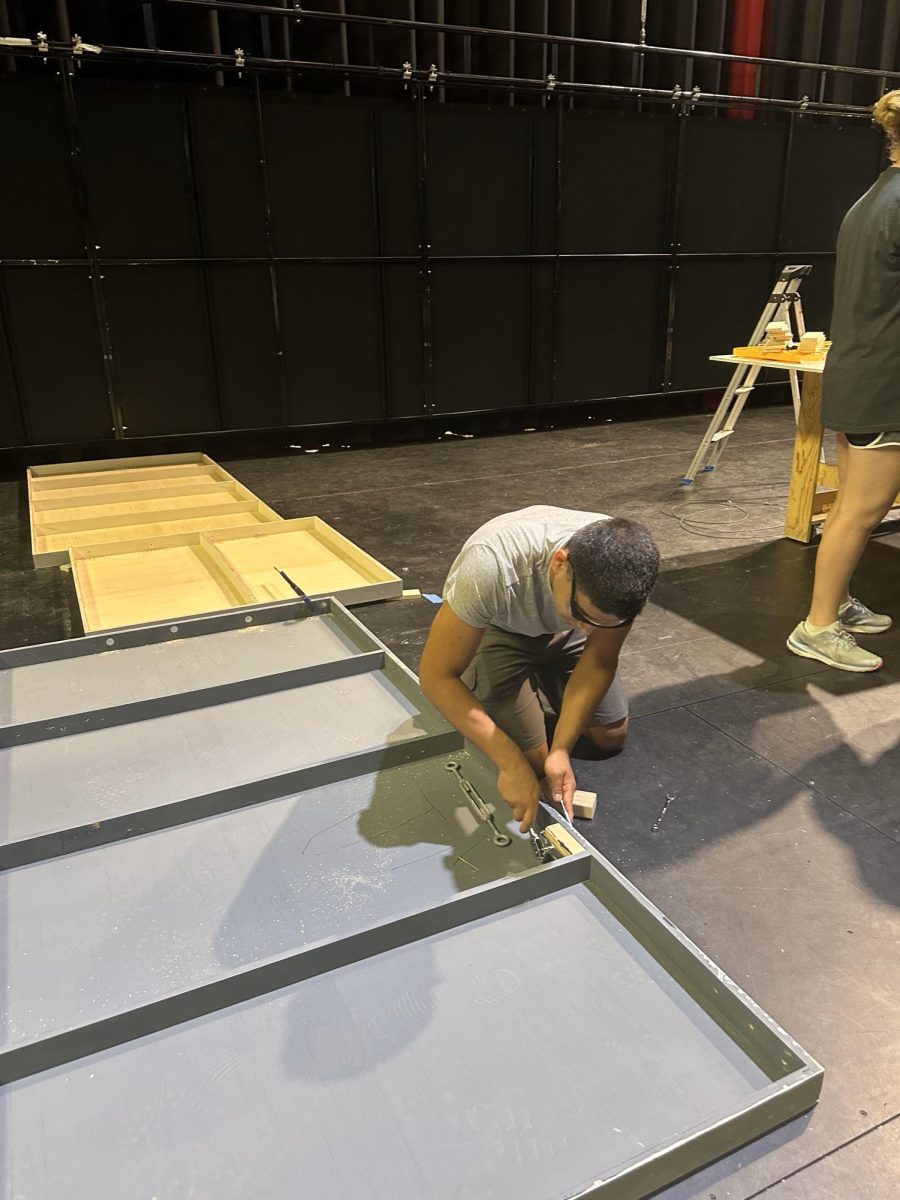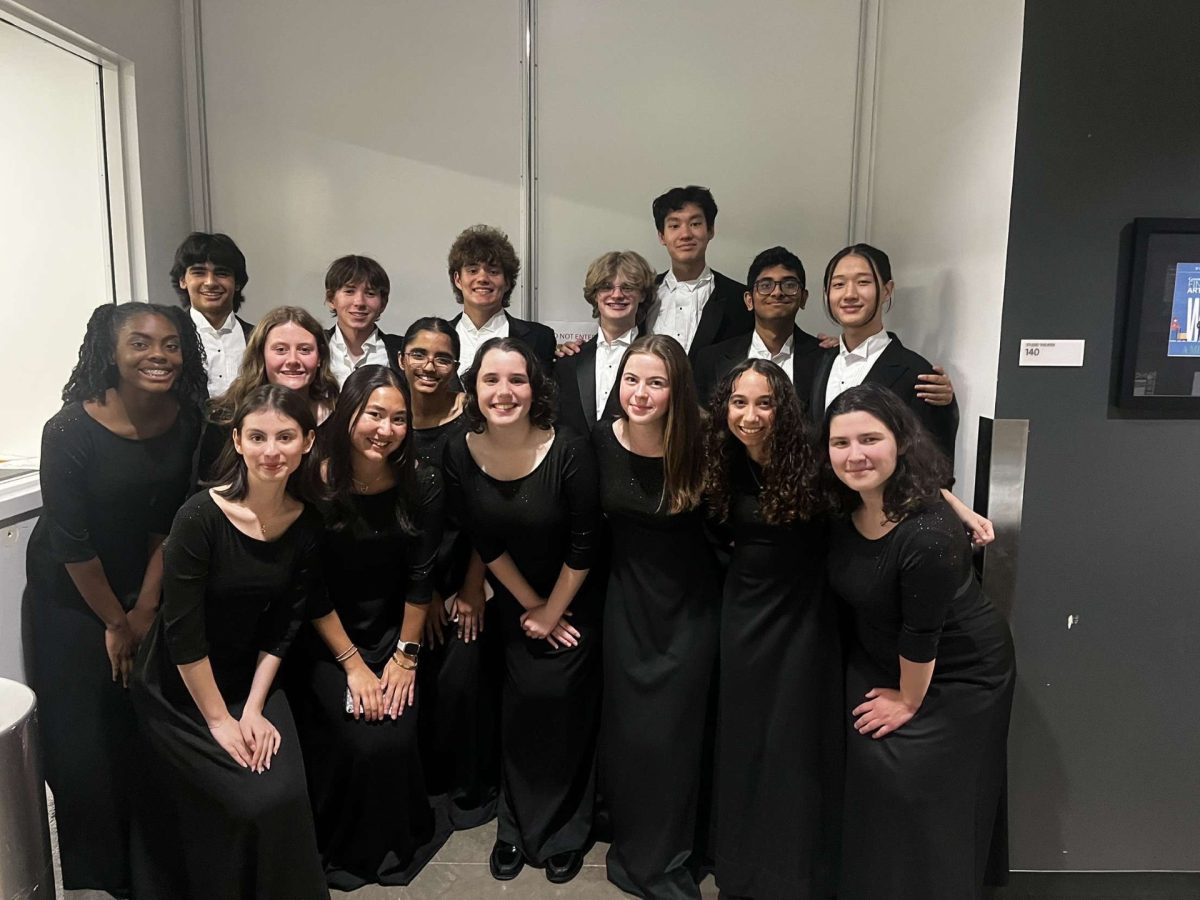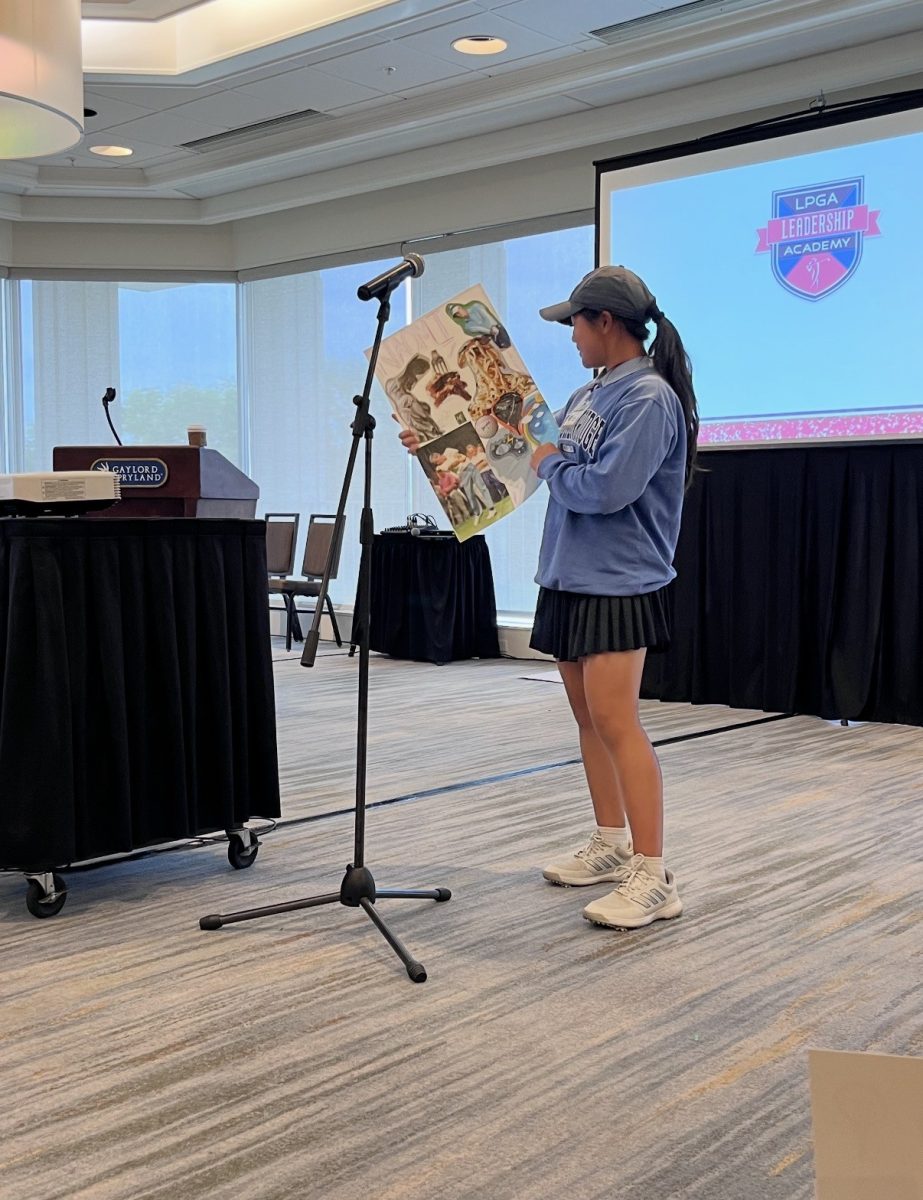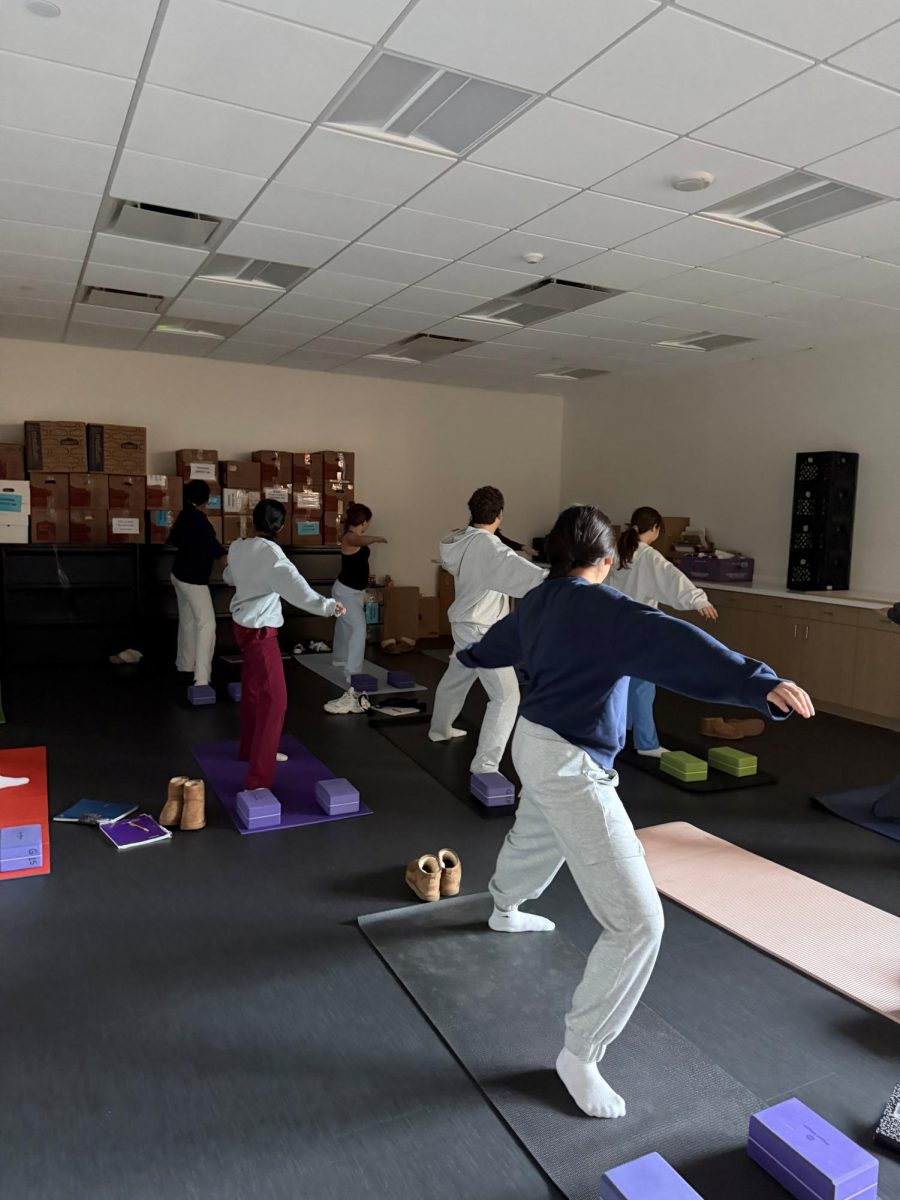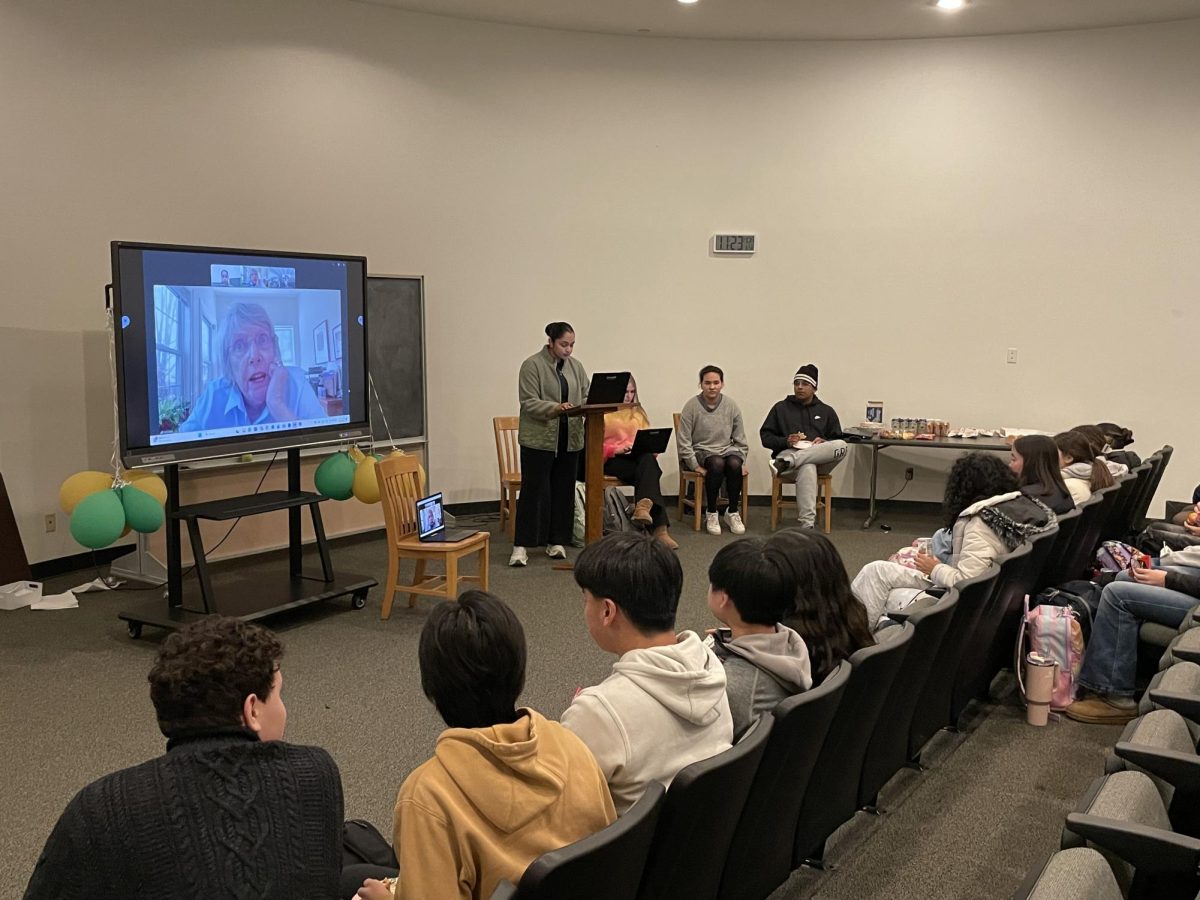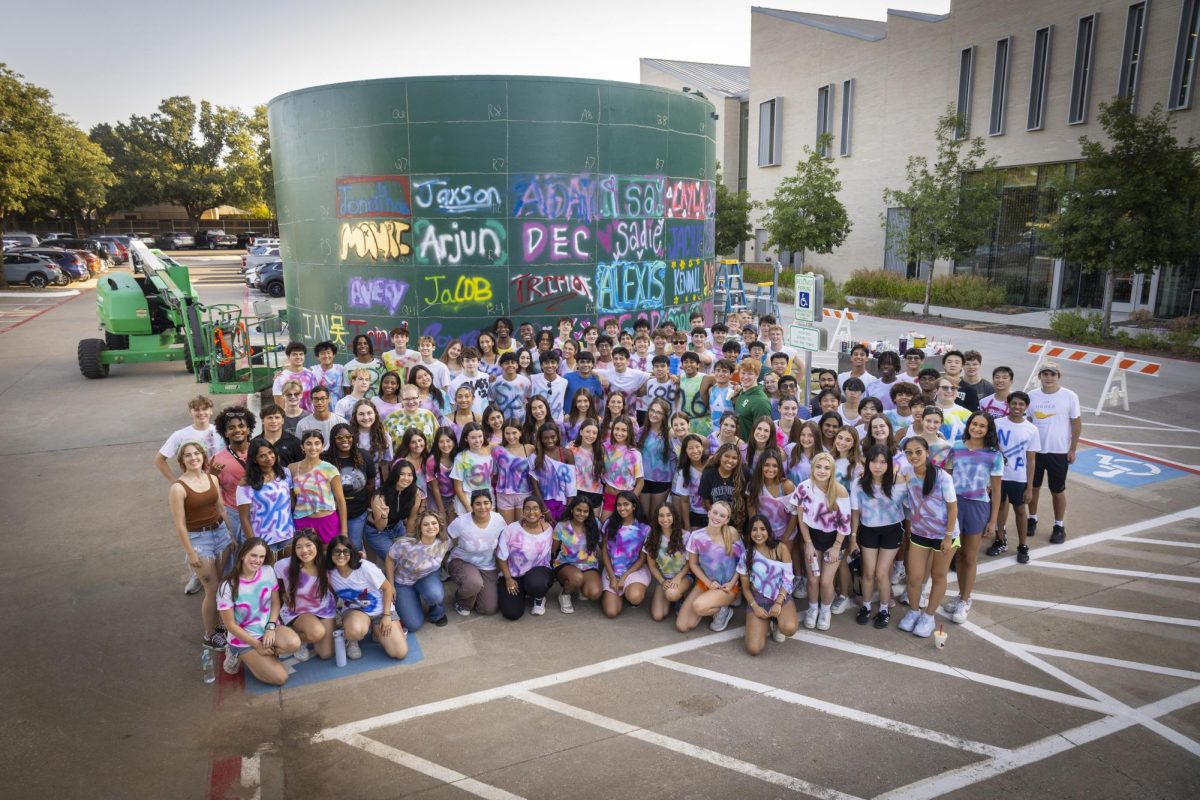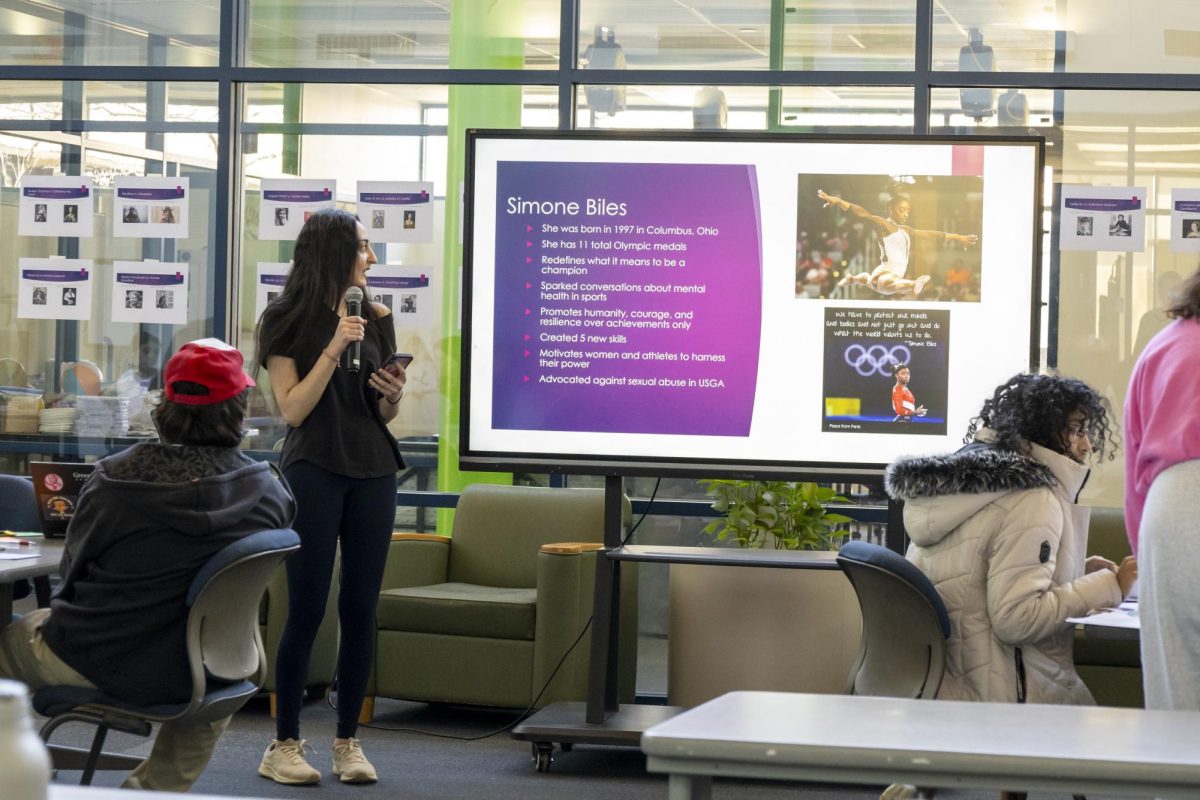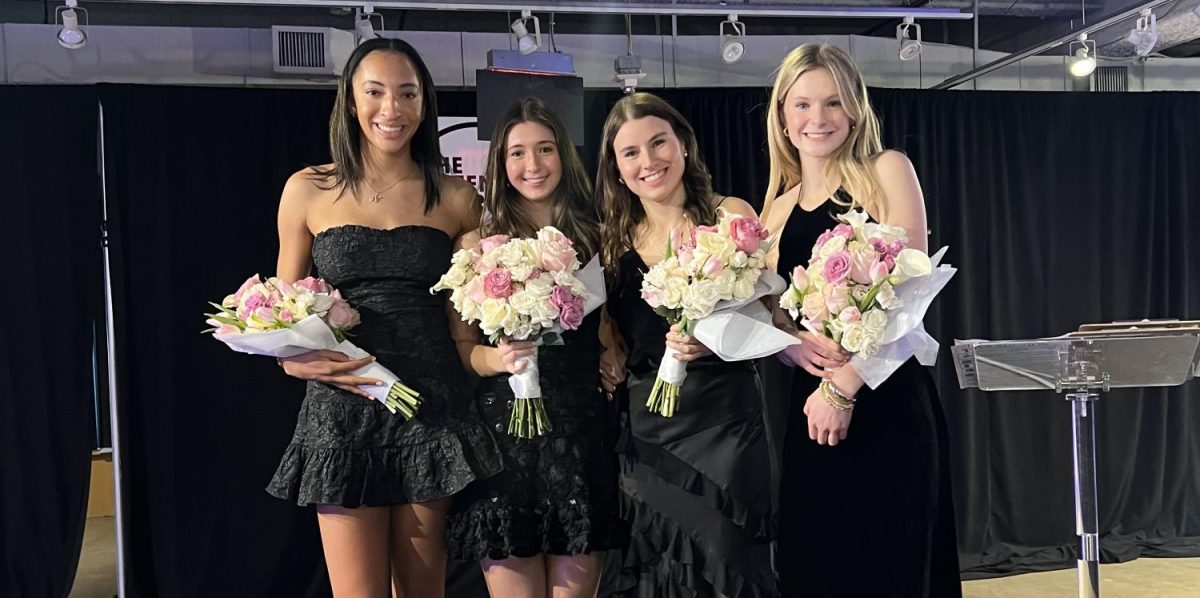Walking through the glass doors of the Marshall Family Performing Arts Center, an airy, library-like silence mirrored a lofty concrete and glass aesthetic one day in early November. The tap tap tap of Fine Arts office coordinator Maxey Goold barely disturbed the quiet.
Beyond the formal exterior of the MPAC hummed a lively atmosphere of student actors, tech theater students and teachers, united in their work to bring a play from a raw script to polished reality in Rose Hall each semester.
At the center of this group is Upper School Drama and Theater teacher Valerie Hauss-Smith. Her job is to choose, curate, and direct a show. This semester, she selected“Mean Girls,” a 2004 American teen comedy film critiquing high school cliques.
“As a director, I am a big part of the choosing of the material,” Hauss-Smith said. “[Along with] working on editing the play in conjunction with several people in terms of making sure that it’s appropriate for the school to present.”
After editing the source material, Hauss-Smith created the rehearsal calendar that dictates the schedule of every day for three months. This year, she worked with over 60 actors and tech theatre students.
Sitting in Rose Hall, a professional stage fully prepared with lighting, scenery, audio equipment, and a proscenium that can seat up to 600 people, she described the process as “doozy.”
A stage-left exit and a few additional steps bring a visitor to the technical theater workshop, formally known as Potter Rose Production Studio. Inside the workshop, to a cacophony of whirring drills and thunderous banging, Upper and Middle School Technical Theater teacher Will Turbyne helped his goggle-clad Tech Practicum students assemble large set pieces and build props for “Mean Girls.”
On a typical day before the mid-November production, sophomores Helen Reed and Alyssa O’Gorman hammered and drilled on what seemed to be an oversized wooden shelf while sophomore Avery Montoya and junior Doodle Schultz slowly turned clear plastic cups to evenly coat them with resin.
Stage props such as these are separated into three categories: usable props from previous productions, those that needed modification for the latest production, and ones that must be bought.
Each prop’s use in the play ultimately dictated its design or price range. For instance, during the musical’s Spring Fling Ceremony at the fictional North Shore High, the character Cady Heron breaks apart a plastic crown to protest its empty value. It was Schultz’s job to consult the script and come up with viable options for the Greenhill adaptation.
“For the crown, I was like, ‘Do they actually want to break it or not?’,” Schultz said. “So, I went and found a couple of options for if they do want to break if because those are cheaper because then we have to have three at least. And I found some options for if they don’t want to break the crown because then it can be a bit more expensive and be in a set with the crown for the king.”
As Schultz and Montoya continued work on the cups, someone shouted instructions above the tumult. “If it ain’t flush, make it flush,” the voice commanded.
Flush, in terms of general carpentry and technical theater, means having two pieces of material completely level with one another. The sets are partially taken apart and stored in different areas of the MPAC on demolition day to avoid distortion, according to Reed.
Certain elements from previous productions are sometimes reused to generate less waste. If damaged beyond reuse, new pieces can be made, technical theater students said. “For example, we saved the hanging doors from the “Big Fish” production of last year and have reincorporated it into our set,” said Reed.
Another piece the technical theater students were working on during their build day was a background set and lighting.
“The process of moving a light is pretty complex,” said Performing Arts Building Manager Leann Burns. “Basically, you strike a light, you move into the new position, and then you have to run power and cabling to it.”
While sets, props, and lighting are instrumental in audience immersion, actors must personify their parts to fully transport the audience to the fictional North Shore High.
Senior Jnana Velamuri works to gather baseline measurements for actors.
“We bring in everyone one at a time and hand the outfits they change into,” Velamuri said. “If the pants are too big, we’ll stitch them up, just so we know to take this in, or we have to let this out, stuff like that.”
After everyone is squared away size-wise, costuming adds the finishing touches.
“After the first round is done, we go through and add all the special things,” Velamuri said. “For example, the art freaks [in the fictional high school] have to have their jeans painted to symbolize they’re a part of that clique.”
The biggest challenge overall for the technical theater team behind the “Mean Girls” production was the sheer scale it operated on. More actors meant more costumes, more props, and less easily scheduled practices.
Technical theater students had to learn how to assemble sets and rig lights on the fly over a six-week schedule, and costuming had to find enough material for at least eighty ensemble costumes.
In the days leading up to the Nov. 15-17 production, Hauss-Smith expressed faith in her students.
“My favorite moment is when we gather before the first show, we have what we call circle, and now, I’m giving it to them,” Hauss-Smith said. “I’m no longer in charge. They’re going to run it, and I can see it in their eyes; they’re ready for it.”
Despite their apprehension, students expressed eagerness as the show’s opening approached.
“I’m a little nervous because this is my first time as an actual stage manager, and I know that it’s going to all go really quickly and I have to stay focused through all that,” said junior Marieve Donnell, a stage manager. I’m just hoping I get through those nerves, but I think this is going to go very well.”
Additionally, students showed a willingness to explore tech theater roles they had not filled in previous years.
“It’s interesting being on this side of it because this is my first year in tech helping with costumes,” said Velamuri. “I’d say for me, it’s a lot less stressful in terms of being antsy performing in front of people.”
Montoya was among the tech theater students experiencing a surge of mixed emotions before the production.
“I’m a little nervous but mostly excited,” Montoya said. “It’s really interesting to see the actors in a position that I was in a year ago, but now I’m on the other side. It’s really given me a huge respect for people who do tech all the time.”

